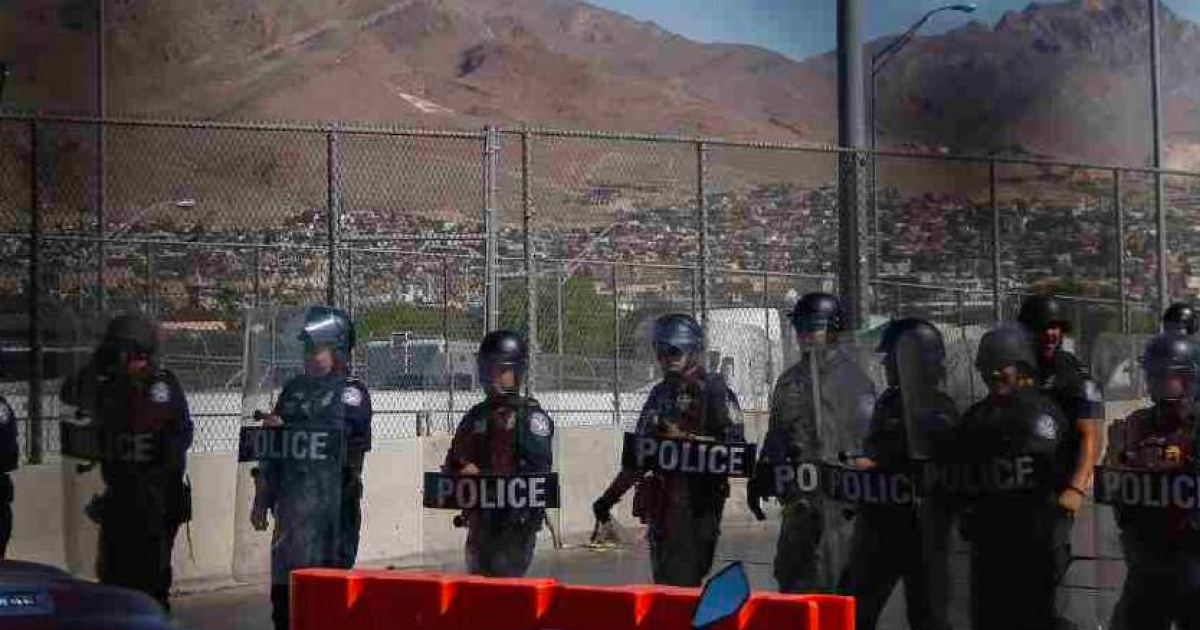
Related videos:
The Pentagon began the deployment of up to 1,500 active troops at the border on Wednesday, following an executive order from President Donald Trump, who promised to strengthen security at the southern border of the United States.
The soldiers will join the 2,500 National Guard personnel already present in the area and will provide logistical support for border patrol operations, according to a statement cited by the AP agency.
The deployment of troops is part of a series of security measures ordered by Trump to curb illegal immigration and what he refers to as "transnational crime" at the Mexico border.
In a statement issued by Acting Secretary of Defense Robert Salesses, it was detailed that the troops will be responsible for monitoring and support tasks, including the use of helicopters and intelligence analysis to enhance surveillance in areas of higher illicit activity.
This move represents a significant increase in active forces at the border, with a 60% rise in the number of personnel since Trump took office.
The measure was announced shortly before the Department of Defense also confirmed the deployment of a fleet of military aircraft to assist in the mass deportation of illegal immigrants.
According to a statement from Salesses this evening, the U.S. government will begin to mobilize military air transport to support deportation flights from the Department of Homeland Security (DHS) that will impact more than 5,000 detained immigrants in the areas of San Diego, California, and El Paso, Texas.
Both measures are part of the new president's border security policy, who has promised to carry out the largest deportation campaign in the country's history.
As part of efforts to secure the border, the Department of Defense will also collaborate on the construction of physical barriers, both temporary and permanent, in key areas to reduce illegal crossings and the trafficking of people and drugs.
Trump, who declared a national emergency at the border after taking office, has emphasized the need for immediate and effective results to address what he sees as a threat to the country's security.
Human rights organizations and migrant advocacy groups criticized the Republican's anti-immigrant policy, however.
The announcement of these new measures has generated strong opposition from human rights organizations, which criticize both the use of the military at the border and the policies of mass deportation.
Migrants' protection groups have reported that the actions of the Trump administration could lead to violations of immigrants' rights and increase diplomatic tensions with countries in Latin America, whose citizens could be impacted by deportations.
As operations intensify, the situation at the border remains one of the most controversial issues of the Trump administration, with a focus on security that has sparked extensive debate about immigration management and human rights in the country.
Frequently Asked Questions about the Military Deployment on the U.S.-Mexico Border and Trump's Immigration Policies
Why has the United States deployed an additional 1,500 soldiers to the border with Mexico?
The deployment of 1,500 additional soldiers at the border with Mexico was ordered by President Donald Trump to enhance border security. These troops will join the 2,500 National Guard members already in the area, providing logistical and surveillance support to curb illegal immigration and transnational crime.
What implications does the use of military aircraft have in mass deportations?
The use of military aircraft in mass deportations implies an intensification in the implementation of Trump's immigration policies, facilitating the transport of over 5,000 detained immigrants in sectors such as San Diego and El Paso. This measure aims to expedite the deportation process and is part of a series of actions to manage immigration at the southern border.
What criticisms have Trump's immigration policies received since their implementation?
Trump's immigration policies have been criticized by human rights organizations and migrant advocates, who argue that these measures can lead to human rights violations and increase diplomatic tensions with countries in Latin America. The use of the military at the border has also been highlighted as an excessive approach.
How do these policies affect Cuban migrants?
Cuban migrants face greater restrictions under Trump's new policies, due to the elimination of humanitarian parole and the implementation of CBP One. This complicates their legal entry into the United States and increases the risk of deportation for those without legal status.
Filed under: